'Only real men wear pink': Chris Froome talks his spectacular comeback to win the Giro d'Italia
Chris Froome on how confidence in himself, his team and his audacious attack carried him to his most spectacular win yet, at the Giro d’Italia
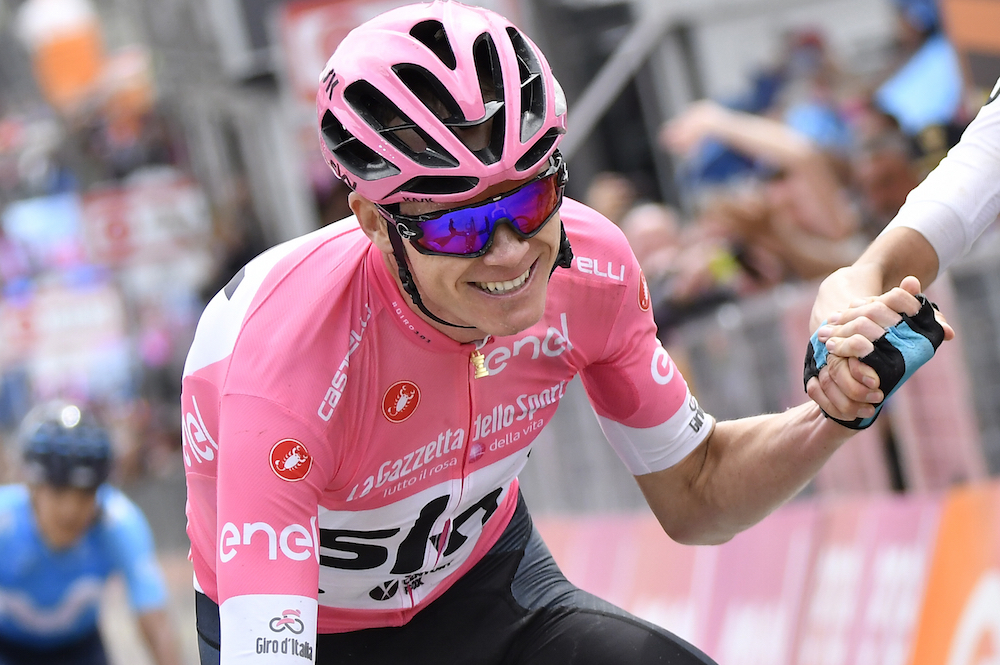
Chris Froome on stage 20 of the 2018 Giro d'Italia (Sunada)
It wasn’t on the slopes of a famous mountain, or lying bloodied on the tarmac in Jerusalem where Chris Froome’s Giro d’Italia campaign nearly came unstuck. It was on the gently rolling roads of Abruzzo surrounded by farms, woodland and picturesque villages.
Stage 10 of the Giro d’Italia had a few warning signs attached to it; there was a big climb at the start, but the parcours wasn’t anything that should have unduly troubled the GC favourites. This was a course that looked set for a breakaway win. And it was, with Matej Mohoric (Bahrain-Merida) winning in a two-up sprint over Nico Denz (Ag2r). But as the leaders forged on, in the bunch Froome was fretful.
“It was a flat finish but quite a lumpy start and I was battling with quite a lot of pain after the crash in Jerusalem,” he recalls. “I wasn’t balanced, I felt one leg was working harder than the other, I had a lot of pain on the outside of my leg, especially on my knee. It was one of those sprint stages where I thought, ‘If it goes any faster now, I’ll go out the back.’ I was just limiting losses and trying to hide how much I was hurting.”
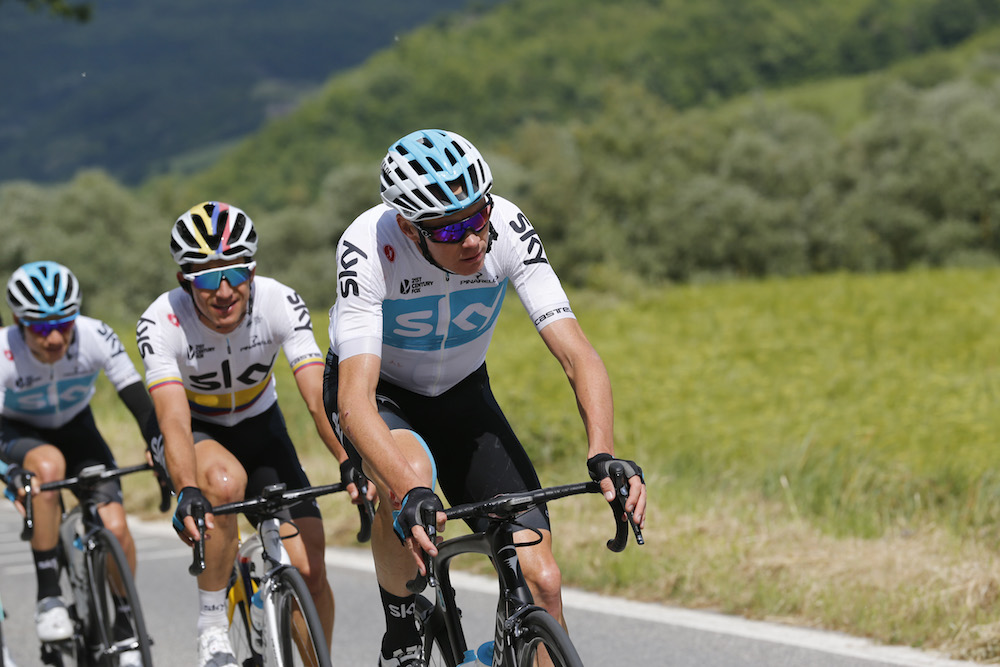
But Froome, one of the modern-day peloton’s masters of the poker face, would survive and continue to recover. Come the race’s final days he’d pull off one of the most spectacular moves in recent years.
Few would have bet on Froome winning that Giro at the start of that third week. But Froome is not most people and asked how he’d have rated British riders’ chances of sweeping the year’s Grand Tours, he displays the supreme confidence common to many great sportsmen: “I wouldn’t have said it was too crazy given that I’d won two in a row. But if you’d said it would happen with different riders I probably wouldn’t have believed you. It’s an incredible achievement and is testament to how far British cycling has come,” he says.
It’s not like that faith in himself hadn’t been tested. Froome entered 2018 at a low point with his reputation in the balance as a result of the widely publicised leak of his Adverse Analytical Finding for salbutamol at the 2017 Vuelta a España in December 2017.
He admits now that the stress of the case made his early season preparation less than ideal. “I think at the time I tried to keep my head down and stay as removed from it as possible,” he says. “But given the severity of the accusations it was a lot to deal with and it’s only normal for me to admit afterwards that it did take a toll on me and it was certainly a distraction.”
Get The Leadout Newsletter
The latest race content, interviews, features, reviews and expert buying guides, direct to your inbox!
Expert advice
Was he obsessively Googling studies on salbutamol levels? “That was more in the off-season,” he says. “That took up pretty much all of my downtime. I was just researching and contacting as many experts as possible to find out how it could have actually happened.
“But the more specialists and experts we spoke to it did give me reassurance that we would get to the bottom of how it had happened.” Froome adds that by the time he was flying to Jerusalem he had confidence that the case would go his way and says at no point was he worried that his Giro win might be taken from him.
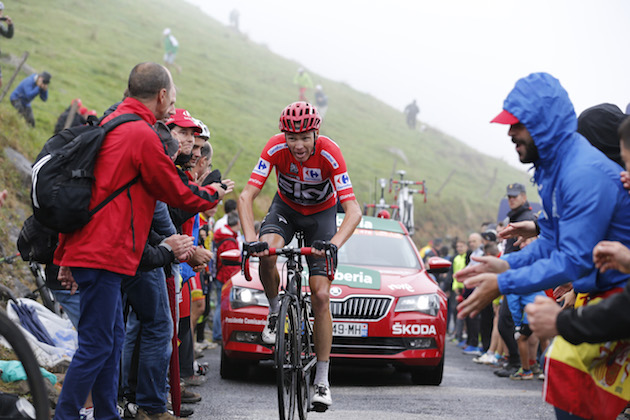
His confidence that he would be vindicated and his ability to navigate WADA’s quasi-judicial process, is striking. A level of worry or concern that even though he knew he’d done nothing wrong he might lose anyway (after all, innocent people do find themselves convicted) would only seem natural, but Froome appears not to have felt this.
So he took to the Giro’s startline not just with confidence in his innocence but a supreme confidence in his own ability and his team. Froome was embarking on an ambitious and meticulous strategy to lose weight through the race and arrive at the third week in his usual peak condition.
He was following an incredibly detailed and strict plan. Documents released to the BBC after the race showed he weighted 69.3kg at the start of stage 11 and was expending more energy than the 2,466 calories he was consuming.
There were signs that it was working, with his win on the Zoncolan on the race’s penultimate Saturday, but then losing 51 seconds to Tom Dumoulin and a minute and a half to Simon Yates the next day showed he was not yet at his all-conquering best.
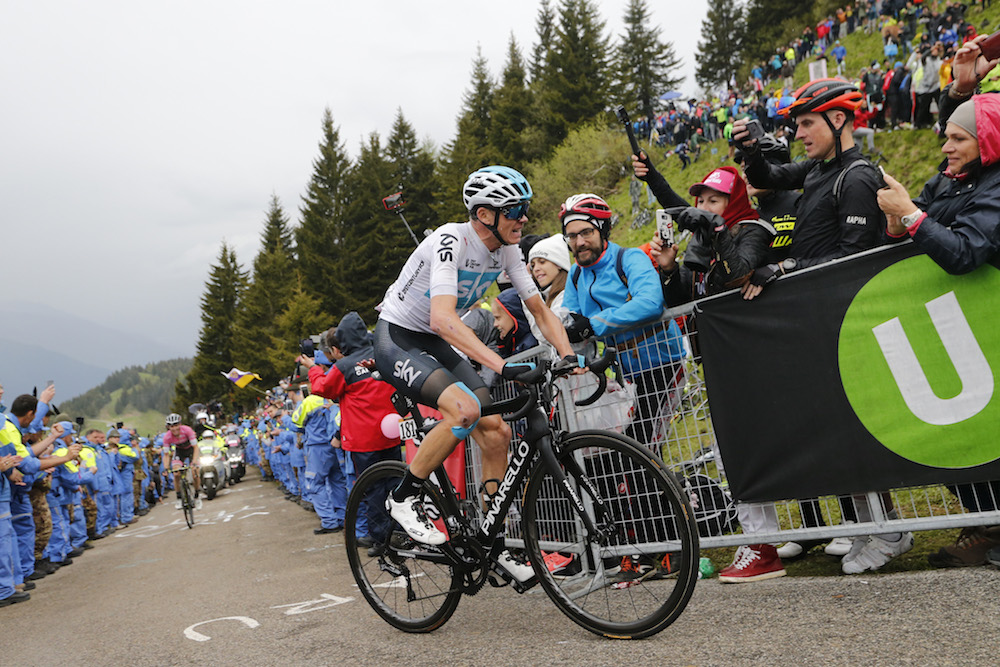
“Everything just came together after that second rest day and I felt like I was on the up. I did a decent time trial and that last mountain block was key,” he says.
That is putting it mildly: but by then he had dropped to 68.9kg (actually slightly above his 68.5kg target). The last mountain block would contain, in his attack on the Finestre with 80km to race, a rare sporting moment, one you knew was historic as you watched it. “That will stay with me for the rest of my life,” he says.
Perfect combination
Froome doesn’t, however, feel it was all his own strength or the team’s meticulous planning — every member of the staff was stationed along the route to hand out food and drink — that made it work. He points to a “perfect combination of factors” including a 3.22 deficit to the pink jersey (and only 28 seconds less to Dumoulin); Sebastian Reichenach, working for FDJ leader Thibaut Pinot, slowing down the descents; and Richard Carapaz (Movistar) and Miguel Angel Lopez (Astana) battling for the white jersey and sitting on in the chasing group that made the attack work.
“I feel if Dumoulin had gone into TT mode at that point and it was a mano-a-mano 80km time trial to the finish he would probably have beaten me and I certainly wouldn’t have beaten him by over three minutes. I genuinely think that because there were all kinds of dynamics and he was trying to get other people to ride rather than putting everything on the line, that’s where he lost the race.”
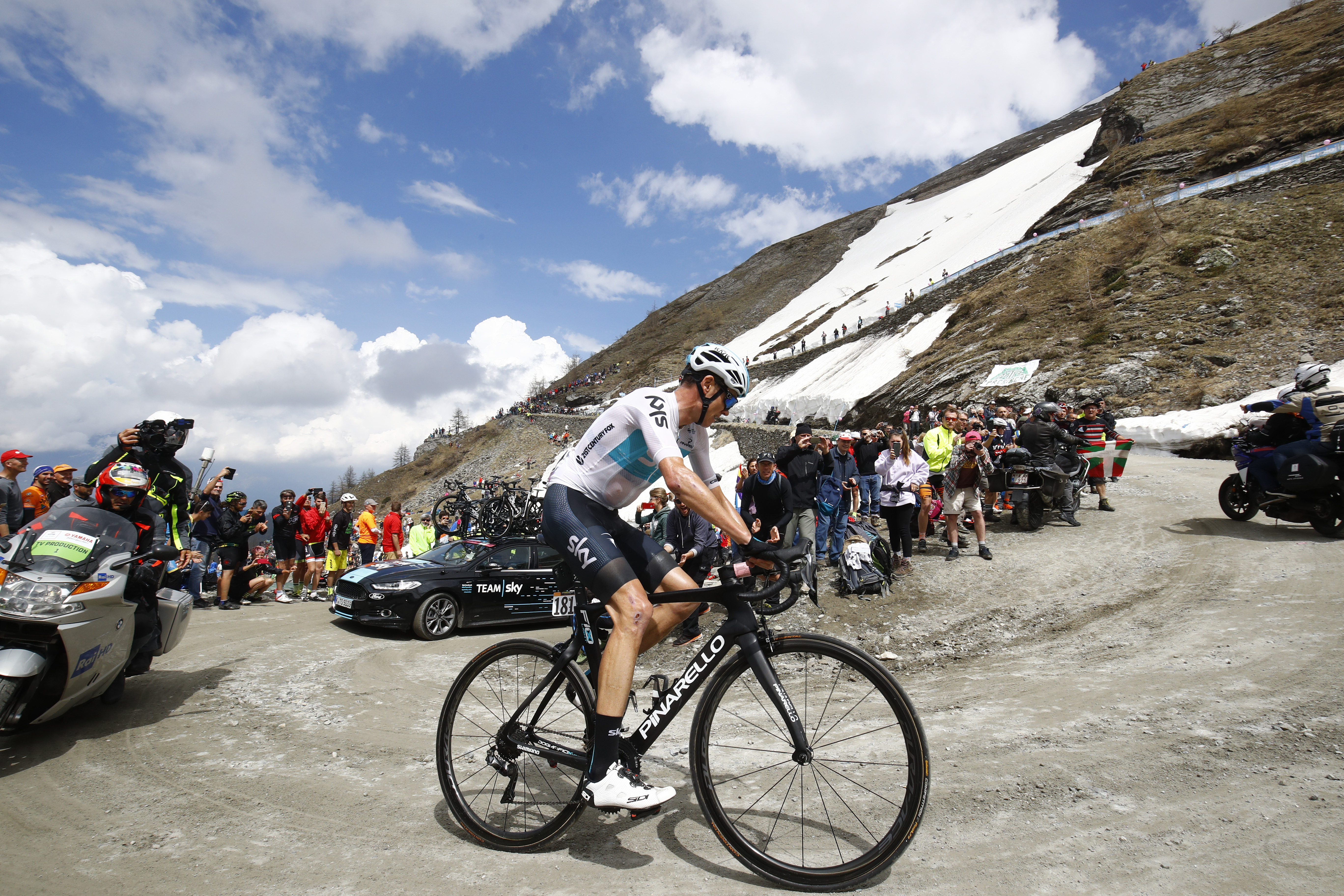
But Dumoulin finds himself in a place where Froome was around 2014: he’s won one Grand Tour but he hasn’t quite yet earned the ability to say, as Froome does, that a podium finish is of no consequence to him. And there’s that C word again: “I think experience and confidence definitely comes into it. There’s no way I would have made a move like that earlier in my career. I was willing to gamble everything on that one stage.”
So spectacular was the victory that it brought criticism from those who, perhaps understandably given the ongoing legal case, had doubts about its veracity. But Froome says he paid it little mind: “If every amazing performance is overshadowed with doubts then we’re all wasting our time training on the bike because that’s what top-level sport is meant to be.”
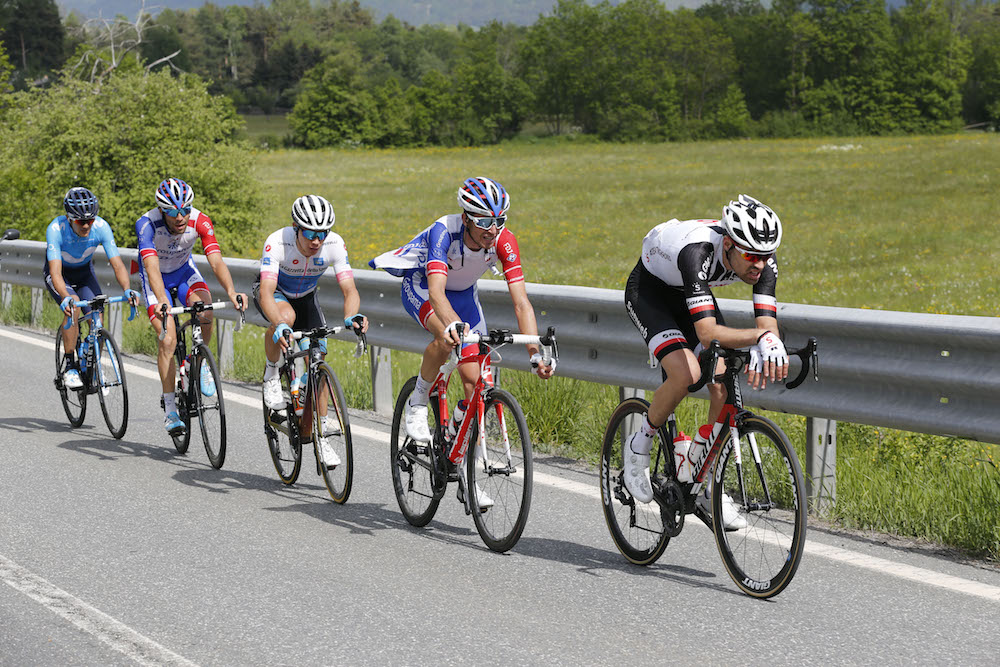
The celebration two days later after the race rolled into Rome was muted. “We didn’t have a massive night, we had a more controlled evening where we just had a nice dinner and nice company. A few of us had partners that came out. It was very last minute given I only got the jersey a few days before the end. Also, with the Tour de France coming, it wasn’t really the time to be completely letting loose.”
A bridge too far
The Tour would prove to be where Froome’s confidence betrayed him. He’d backed up the Tour and Vuelta in 2017 but the Giro and then the Tour proved too much. As he rode the Tour’s shortest stage through the Pyrenees he knew his chances were over. “I followed a move from Primož Roglič on the early kilometres of the climb. Once I got into that group of guys I hung on but was dropped two to three kilometres from the top — that’s when I realised this isn’t going to happen,” he recalls.
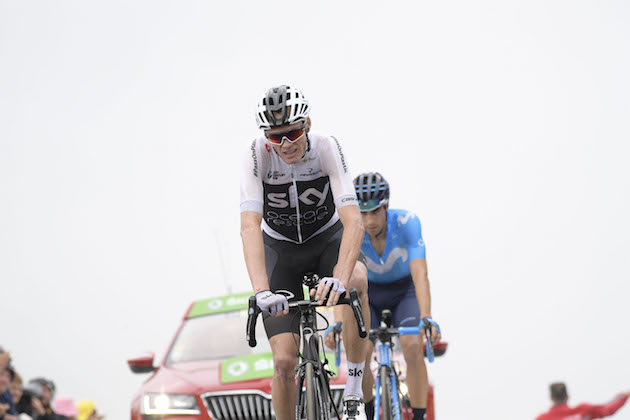
Froome adds he felt sadness for his own loss and happiness for his team-mate and friend Geraint Thomas’s victory. “Given the run I’d had winning the Tour, Vuelta and Giro, settling for third on the fourth one wasn’t exactly a train smash,” he says.
We wonder idly which one of the winners’ jersey colours he prefers; for instance, would he wear a red, yellow or pink shirt for a night out? Froome laughs, then with that trademark authority and confidence returning to his voice, alongside a wry sense of humour, says, “Only real men wear pink.”

Thank you for reading 20 articles this month* Join now for unlimited access
Enjoy your first month for just £1 / $1 / €1
*Read 5 free articles per month without a subscription

Join now for unlimited access
Try first month for just £1 / $1 / €1
Having trained as a journalist at Cardiff University I spent eight years working as a business journalist covering everything from social care, to construction to the legal profession and riding my bike at the weekends and evenings. When a friend told me Cycling Weekly was looking for a news editor, I didn't give myself much chance of landing the role, but I did and joined the publication in 2016. Since then I've covered Tours de France, World Championships, hour records, spring classics and races in the Middle East. On top of that, since becoming features editor in 2017 I've also been lucky enough to get myself sent to ride my bike for magazine pieces in Portugal and across the UK. They've all been fun but I have an enduring passion for covering the national track championships. It might not be the most glamorous but it's got a real community feeling to it.
-
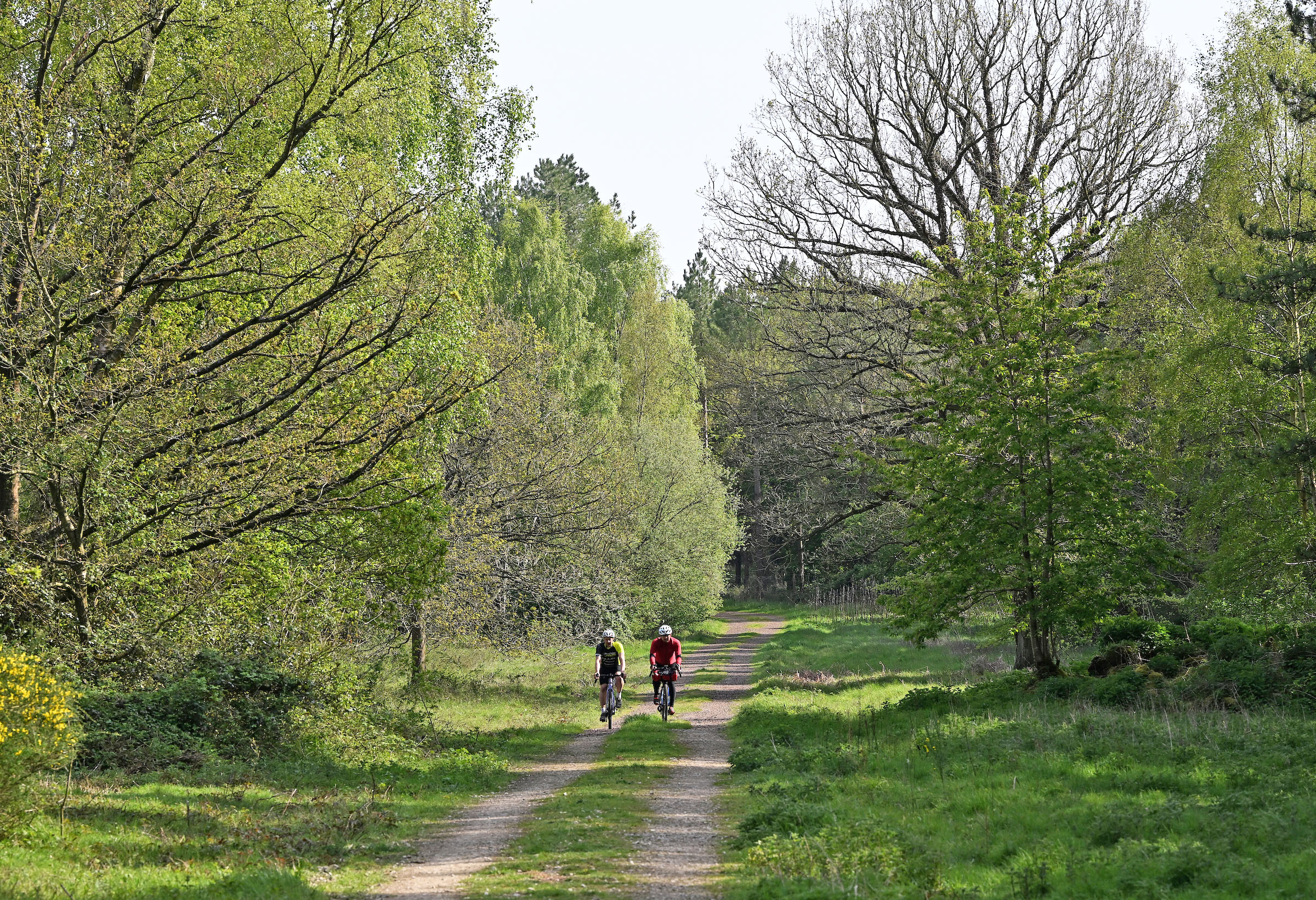 The sun's out and so am I: why there's no shame in being a fair-weather bike rider
The sun's out and so am I: why there's no shame in being a fair-weather bike riderLet's be honest, rain and riding bikes don't mix well – there's nothing wrong with waiting for the sun
By James Shrubsall
-
 FDJ-Suez, SD Worx-Protime, Lidl-Trek confirmed for Tour of Britain Women as strong list of teams announced
FDJ-Suez, SD Worx-Protime, Lidl-Trek confirmed for Tour of Britain Women as strong list of teams announced18 teams set to take part in four-day WorldTour stage race
By Tom Thewlis
-
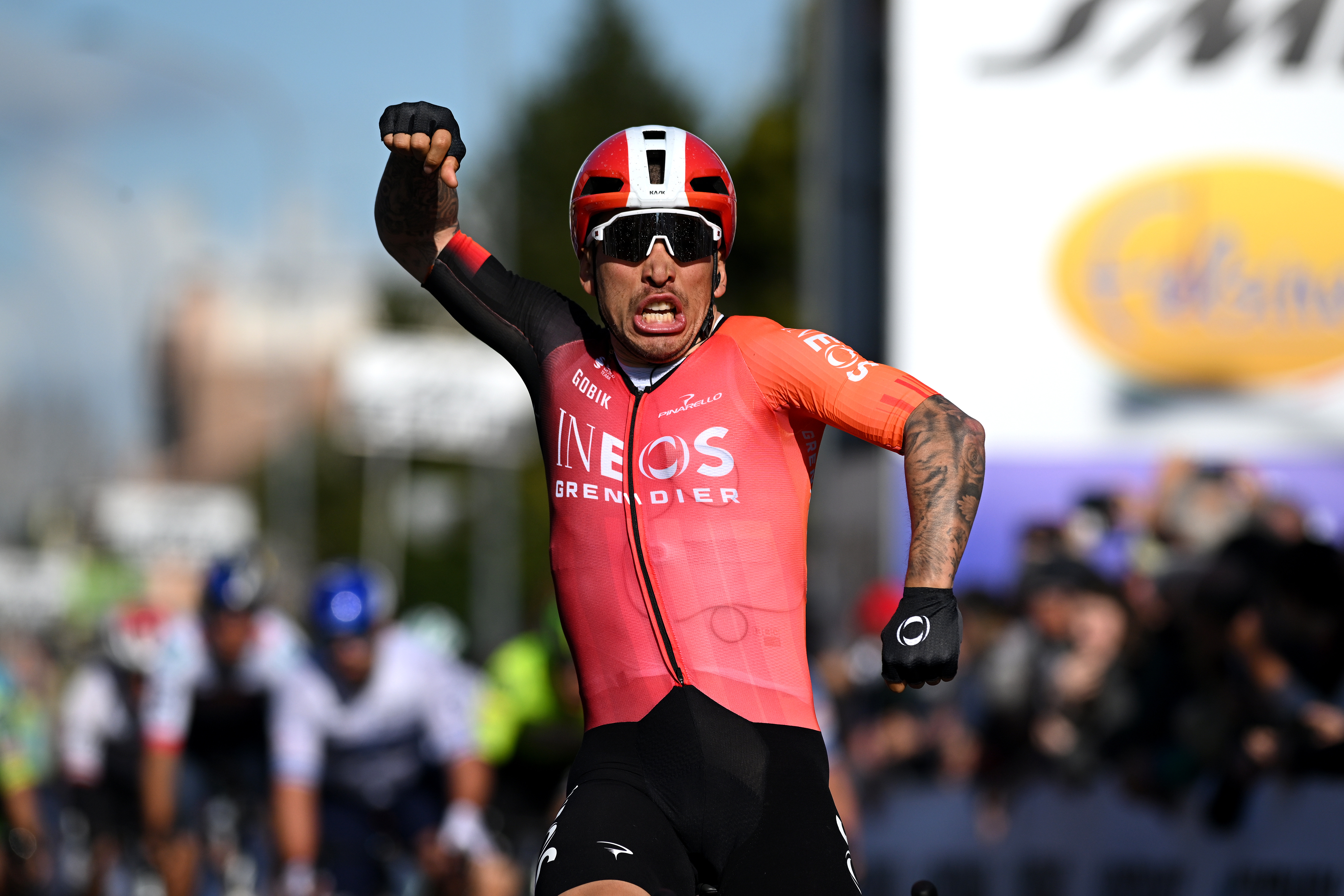 'It can really push me along' - How a velodrome comeback is making Caleb Ewan faster on the road
'It can really push me along' - How a velodrome comeback is making Caleb Ewan faster on the roadAustralian says he'll "definitely" continue track work after rekindling passion
By Tom Davidson
-
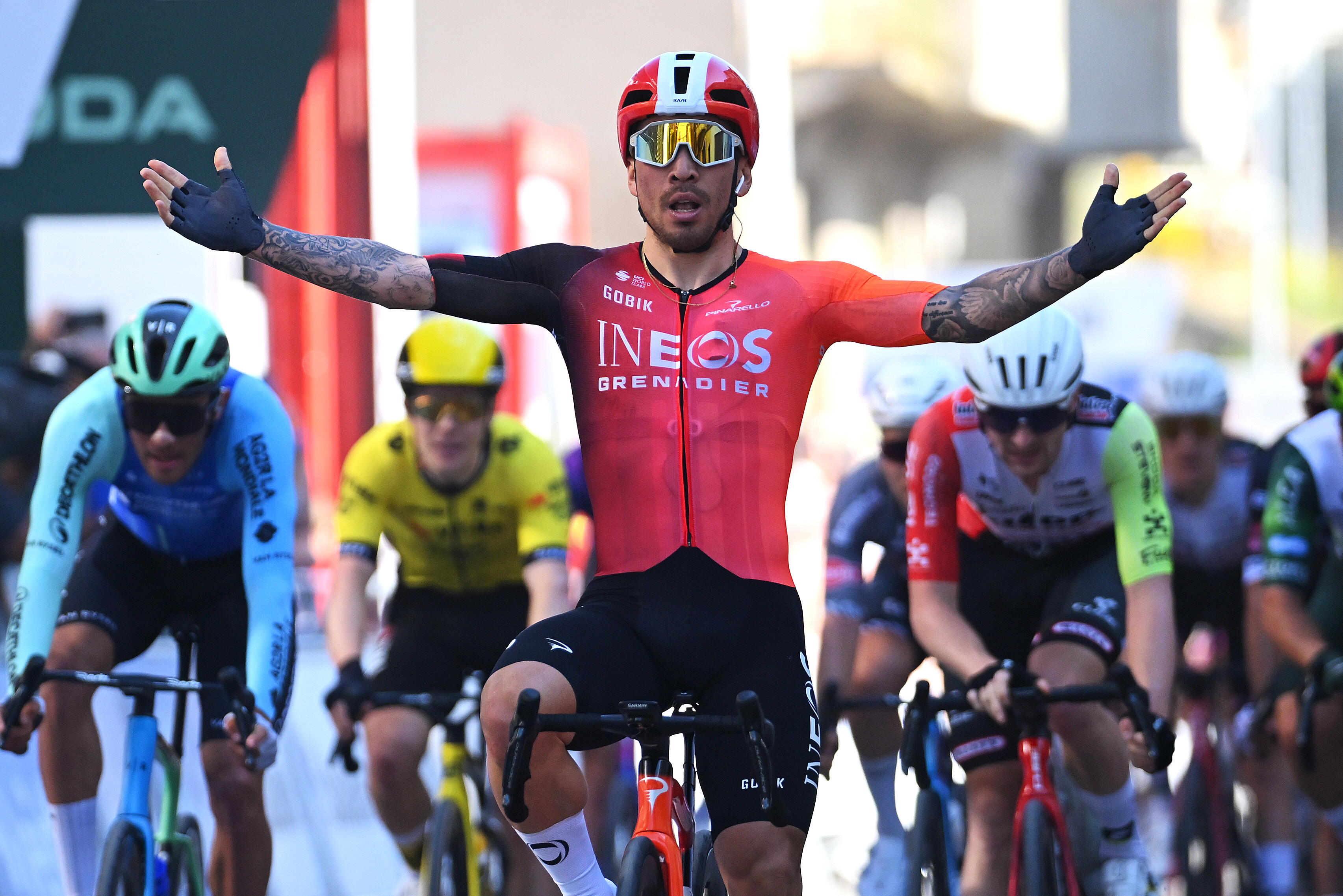 Could Caleb Ewan be Ineos Grenadiers' first Tour de France sprinter since Mark Cavendish? 'That's my goal'
Could Caleb Ewan be Ineos Grenadiers' first Tour de France sprinter since Mark Cavendish? 'That's my goal'"All I can do is try to win as much as possible and prove that I deserve to be there," says Australian
By Tom Davidson
-
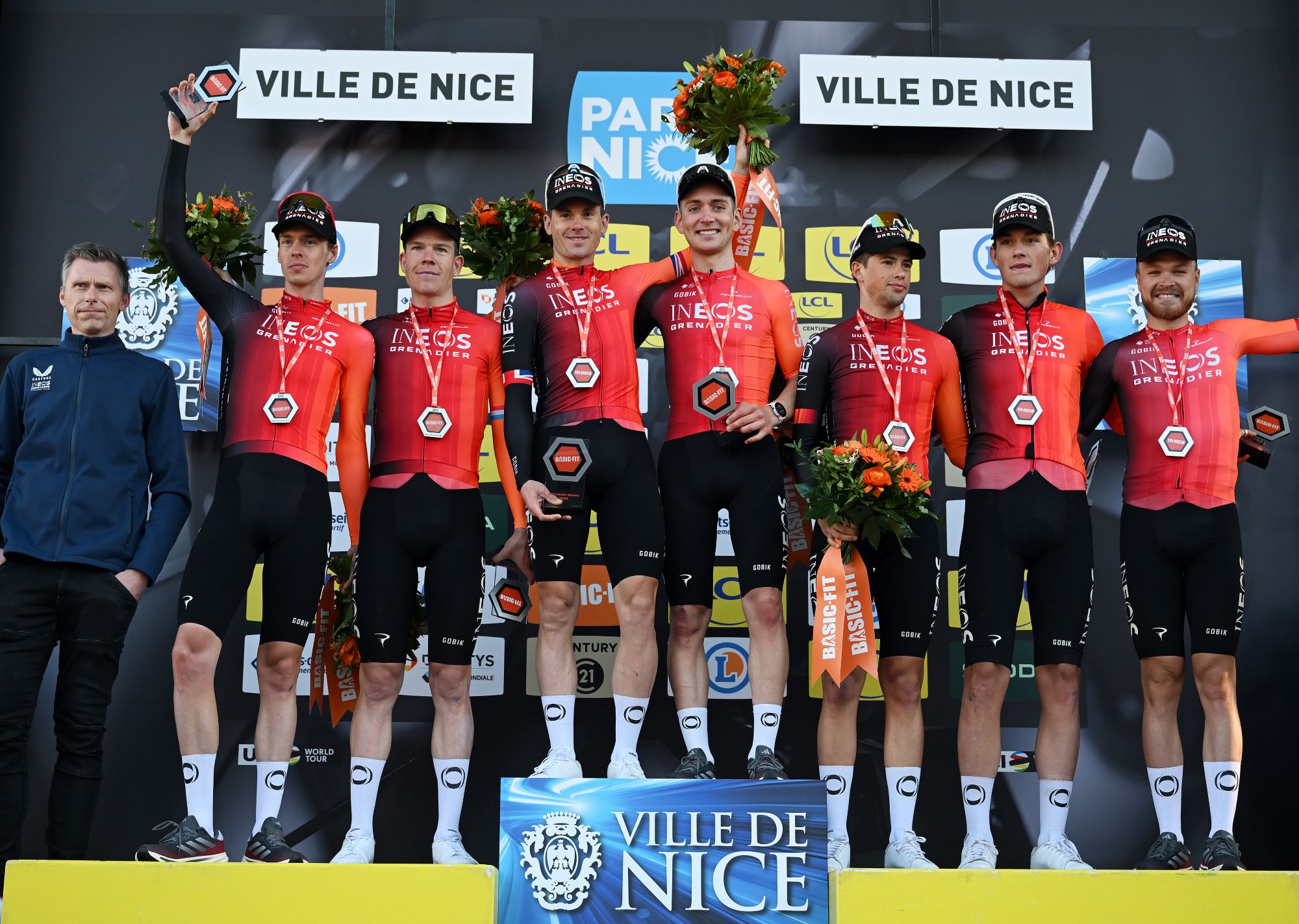 'An unprecedented opportunity for brands to be part of the evolution' - Ineos Grenadiers sponsor hunt steps up with sales agency partnership
'An unprecedented opportunity for brands to be part of the evolution' - Ineos Grenadiers sponsor hunt steps up with sales agency partnershipSportfive have been employed to find "non-endemic global partners for the team"
By Adam Becket
-
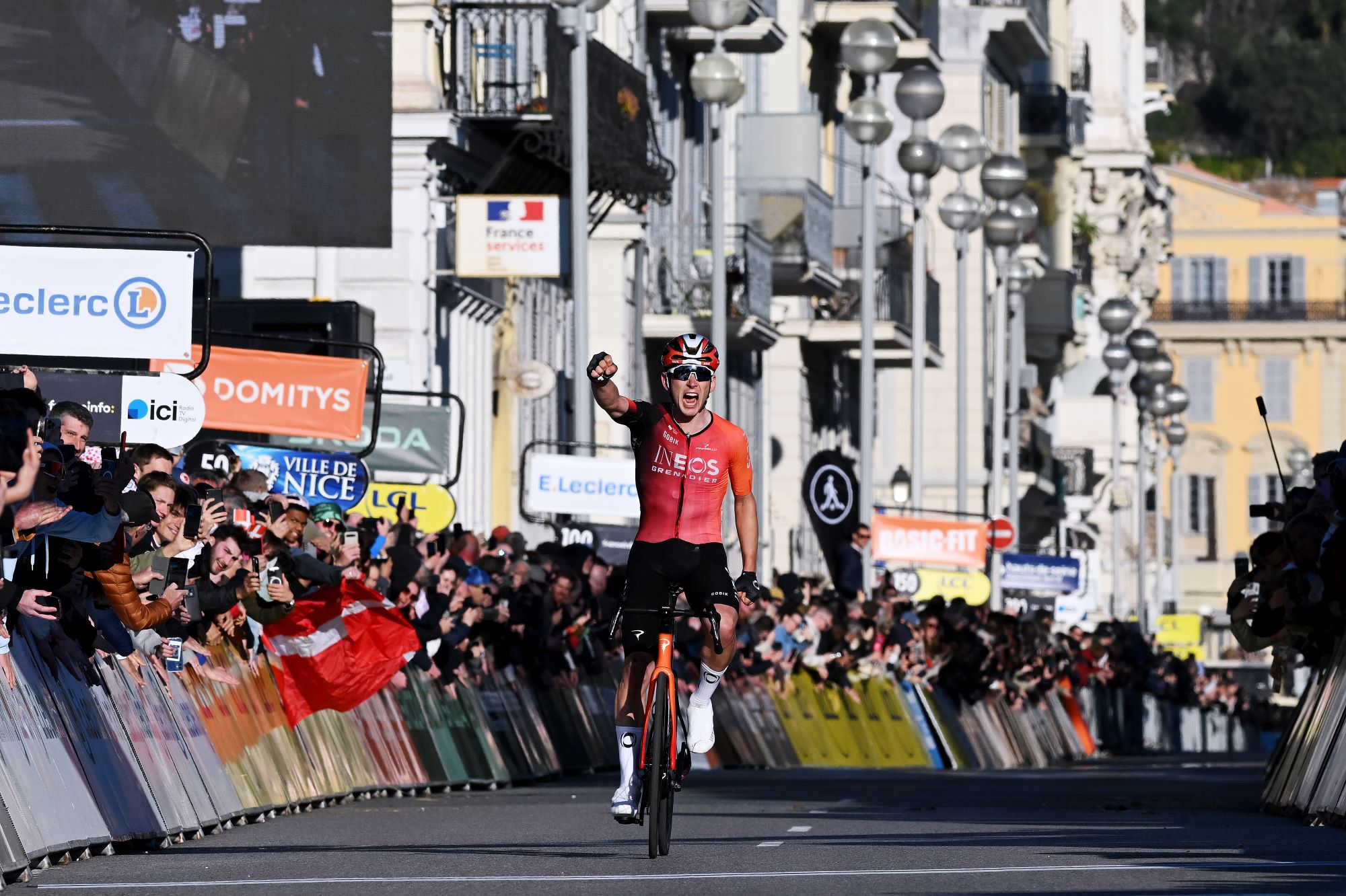 'We've all got a little bit extra in us this year' - Ineos Grenadiers recapture 'fighting spirit' with aggressive Paris-Nice display
'We've all got a little bit extra in us this year' - Ineos Grenadiers recapture 'fighting spirit' with aggressive Paris-Nice displayBritish team continue to put tumultuous 2024 behind them with momentum and a new found mentality
By Tom Thewlis
-
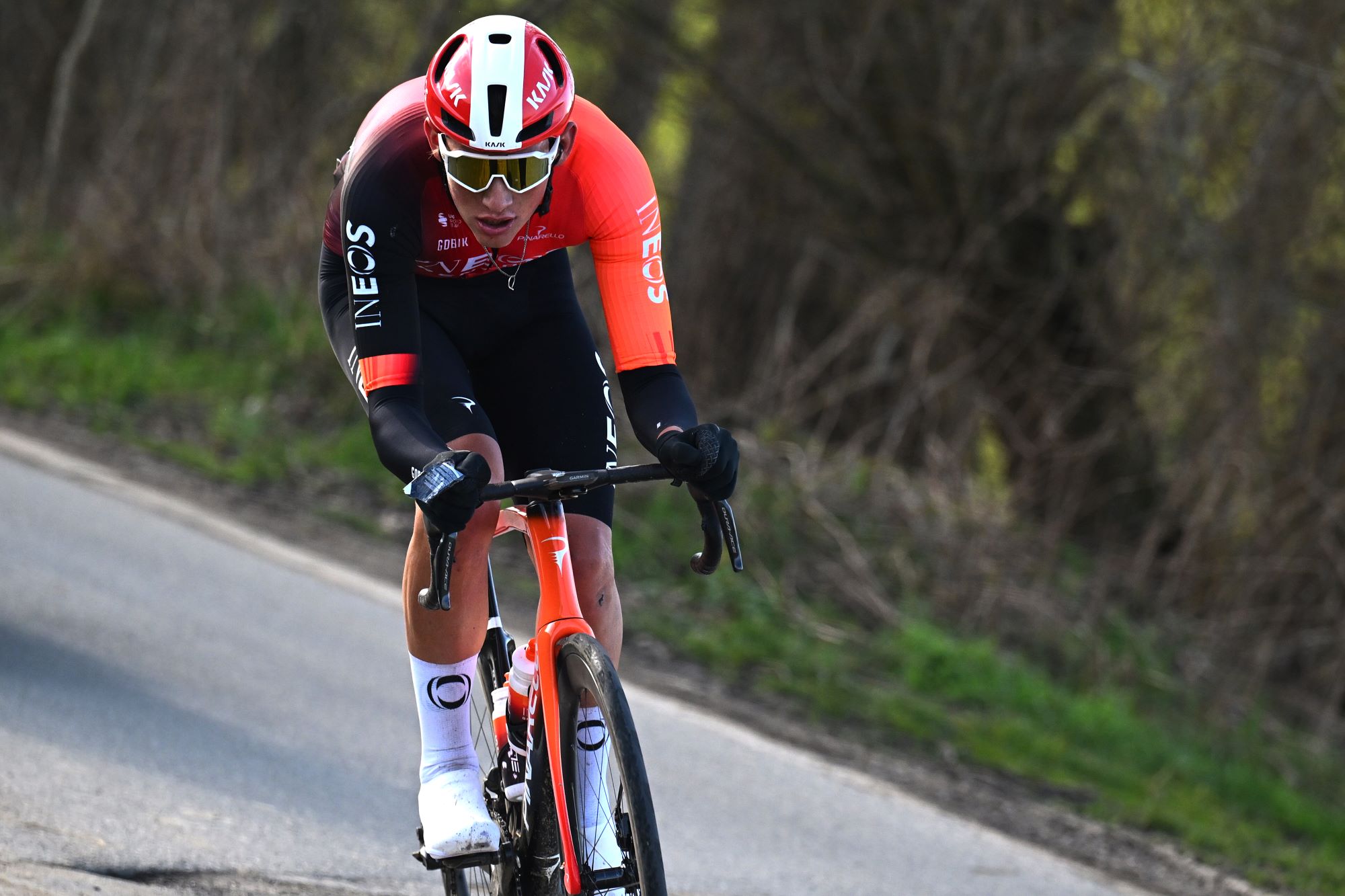 Could a TotalEnergies deal be the end of Ineos Grenadiers as we know them?
Could a TotalEnergies deal be the end of Ineos Grenadiers as we know them?Reports suggested this week that Ineos could be close to signing a deal with the French petrochemical firm
By Tom Thewlis
-
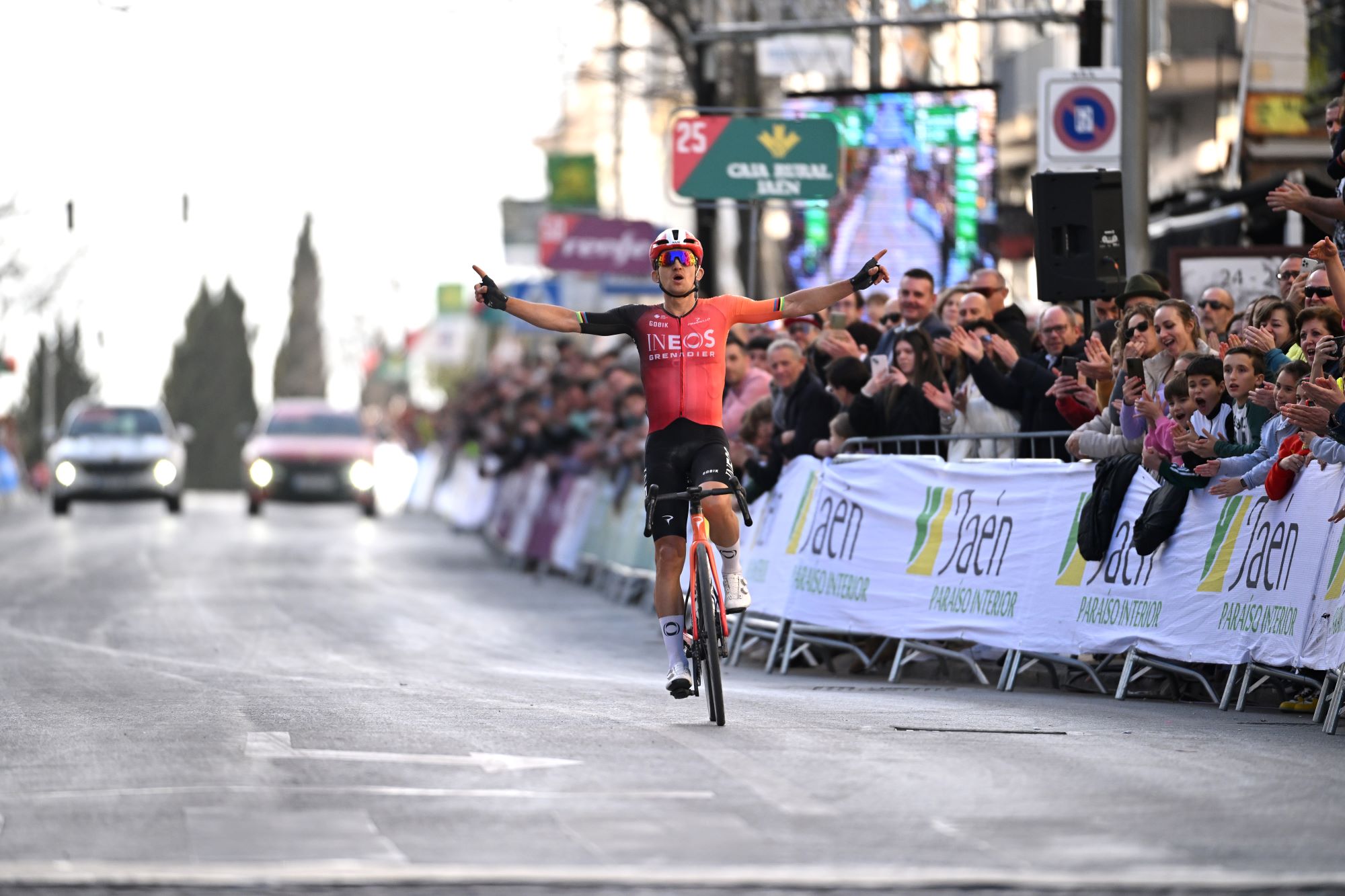 'They’re racing with their hearts again' - Robbie McEwen on Ineos Grenadiers' bright start to 2025
'They’re racing with their hearts again' - Robbie McEwen on Ineos Grenadiers' bright start to 2025The British squad have already won four times in 2025
By Tom Thewlis
-
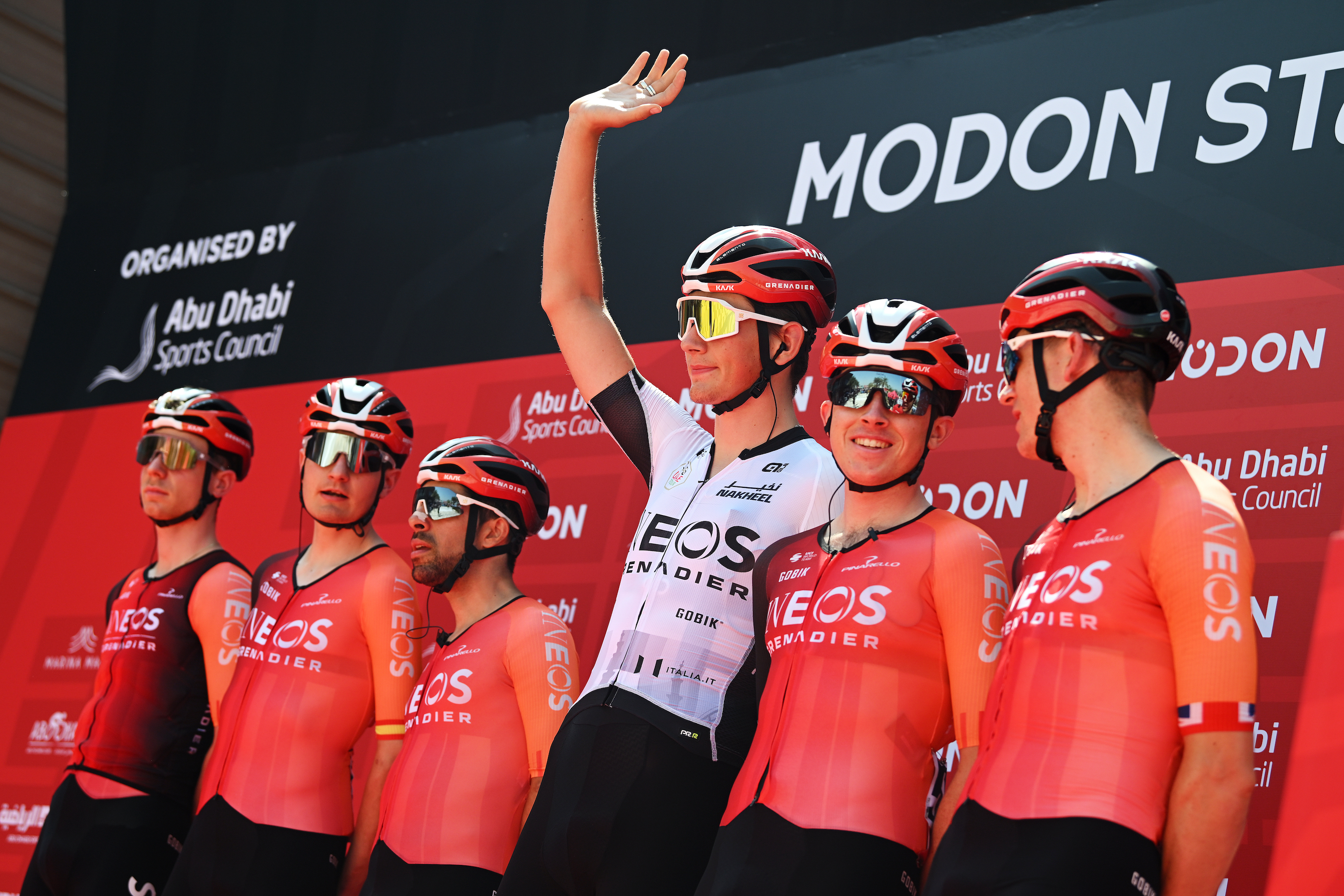 Ineos Grenadiers are entertaining so far this year, but how long will it last?
Ineos Grenadiers are entertaining so far this year, but how long will it last?The British WorldTour squad have won four times already in 2025, but more than that, they have been fun. Is this the new dawn?
By Adam Becket
-
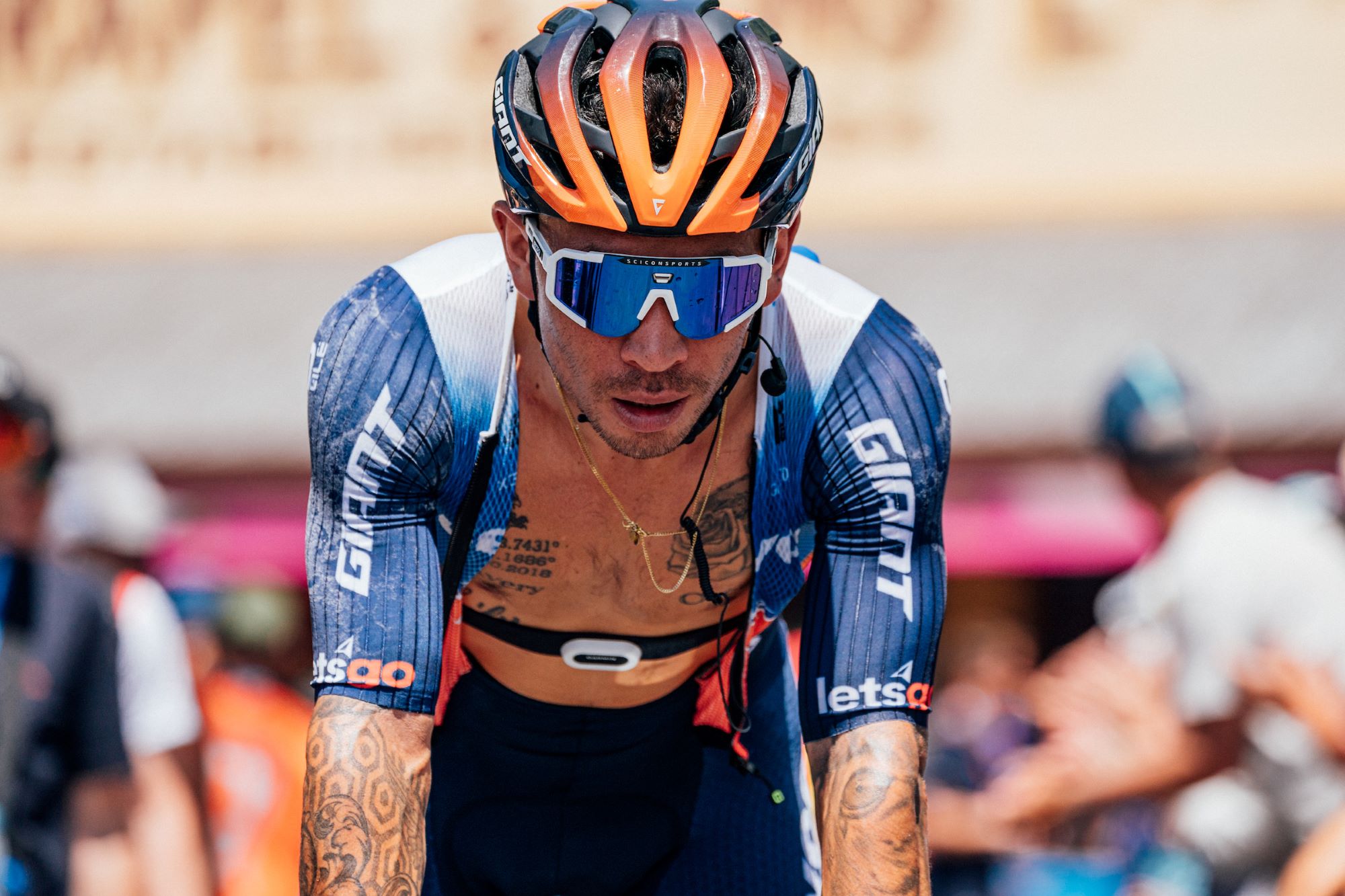 Caleb Ewan says he was put in a 'bad situation' by Jayco AlUla before he joined Ineos Grenadiers
Caleb Ewan says he was put in a 'bad situation' by Jayco AlUla before he joined Ineos GrenadiersEwan joined Ineos Grenadiers in January after spending just one year with Jayco AlUla
By Tom Thewlis